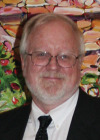HOME | ABOUT US | MEDIA KIT | CONTACT US | INQUIRE
HOME | ABOUT US | MEDIA KIT | CONTACT US | INQUIRE
Coronavirus threat requires clearer thinking.

One of my favorite YouTube clips of all time is a grainy video of a town-hall meeting that took place in 1977 or thereabouts. Seated on a college campus stage by himself was the late, great Milton Friedman. Perhaps better than anyone in the latter half of the 20th century, he was able to translate the language of free-market economics into something that average people, even children, could understand.
Except for an impassioned college student who was nearly on the verge of tears, trying to argue that Ford Motor Co. hadn’t been punished enough for failure to install a $13 part that could have prevented gas-tank explosions on the Pinto model and saved lives. A wave of Pinto-inspired lawsuits had revealed that executives determined it would be cheaper to take their hit in court than to tinker with the Pinto’s design at any price. And Ford did indeed get skull-thumped by juries, to the tune of millions of dollars.
Friedman’s point then was: Would Ford have been wrong to make the same decision if the part involved cost $13 million per car? Wouldn’t that have involved the same judgments about what a human life is worth? It was a powerful argument then,and still is. Friedman often pointed out that as a society, we accept all sorts of risks in trade-offs for a quality of life that we consider—that most of us consider—desirable. Speed limits and their role in annual vehicle-related fatalities, for example. More than 30,000 people die in America every year, roughly 100 a day, because of traffic accidents. Many of those are attributed to excessive speed.
As a society, we make a bargain with lives at stake. To save lives, we could decree that the speed limit every-where will be 2 miles per hour. The problem is, that would have a detrimental effect on the quality of life for those who have to get somewhere faster than a five-hour trip from Downtown to Shawnee. That calculus comes back to mind as I write this, with Mayor Quinton Lucas declaring a state of emergency in Kansas City.
This high-profile action is in defense of public health, a reaction to the COVID-19 virus that quickly morphed from an overseas item of interest to national concern to regional panic to mass hysteria. My first reaction to that mayoral declaration was that he was over-reaching and over-reacting. The underlying numbers of cases nationwide, the rates of hospitalization and the mortality figures, at first blush, didn’t seem to warrant what we were seeing: the Big XII cancellation of its signature annual basketball tournament, the NCAA following by nuking the entire March Madness program, the NBA canceling its season, colleges shutting down classroom instruction to go all-online, and on and on.
Just 48 hours later, I was wondering if enough had been done. Amazon.com founder Jeff Bezos has famously declared that a frequent change of mind, based on new information, is a sign of intelligence. I hope he’s right about that.
Mine changed after seeing reports that the caseloads in Europe are dou-bling every 72 hours. By the time this article is off the presses and in distribu-tion, those numbers could be eightfold higher. Or more. Given the lag between exposure and onset of symptoms, and the additional lag between onset and the first medical treatment, the likelihood that this virus is now unstoppable seems pretty high. The relative safe harbor of incubation periods has fallen away in an age of immediate access to global travel.
At this point, it’s hard to see how even a ban on mass gatherings can stop the spread. Mankind has no immunological history that acts as a defense to this bug. The reality is, many, many millions of people, despite our best public-safety initiatives, self-quarantines and social distancing, will be infected. A significant number of them are going to die. What’s needed, and what Lucas and others are seeking to do, speaks to a broader strategy of managing that spread in a way that will not overwhelm the health-care system.
As David Wild of the University of Kansas Hospital noted, “this is not an existential threat” to mankind. Precautions are warranted; panic is not. The hysteria over coronavirus—fighting in the grocery stores over toilet paper certainly meets the definition of hysteria—simply cannot be justified. Government interventions, however well-intentioned, are too little, too late at this point.
The transmission genie is out of that bottle; containment will not come from the top down. If it is to come, it will be through the actions of hundreds of millions of individuals committed to doing the right thing in their own personal interests: effective hand-washing, self-discipline to stay away from others if you think you’re sick, avoiding large gatherings if you are already sick or have the co-morbidities that increase the lethality of this virus.
We’re going to have to live with this for a long time. Keeping our heads about it, then, would be nice.
Leave a Reply